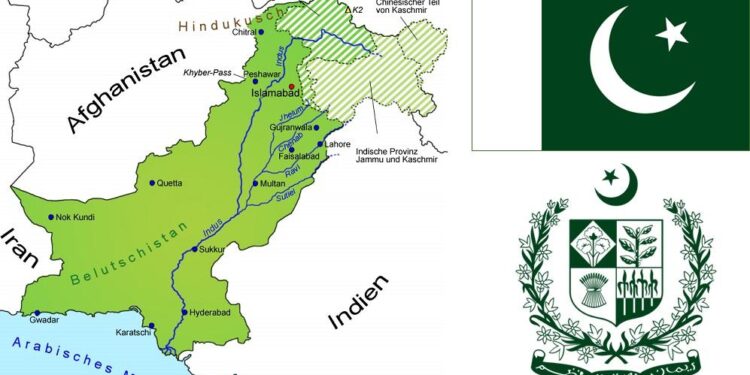In a significant shift in regional geopolitics, Pakistan and China are reportedly engaged in “advanced” discussions to establish a new organization aimed at promoting regional integration, potentially replacing the South Asian Association for Regional Cooperation (SAARC). This evolving narrative comes as SAARC has struggled with internal discord and stagnation, particularly amid persistent tensions between member states. As part of this emerging bloc, both nations are likely to focus on enhancing economic, cultural, and political ties, seeking to create a more cohesive framework that could drive collaboration in the face of global challenges. The implications of this development could reverberate across South Asia, altering existing alliances and reshaping the dynamics of cooperation in one of the world’s most complex regions.
Prospects of a New Regional Bloc Amid SAARC’s Challenges
The ongoing discussions between Pakistan and China mark a significant shift in the landscape of regional cooperation in South Asia, aiming to address the deficiencies observed within the South Asian Association for Regional Cooperation (SAARC). In light of escalating geopolitical tensions and economic challenges, the two nations are reportedly engaged in “advanced” talks to establish a new framework for collaboration, which may include a broader spectrum of sectors such as trade, security, and infrastructure development. This proposed bloc envisions a more agile and cohesive partnership that could provide a stark contrast to the stagnation experienced by SAARC, where political differences have historically hampered effective unity and growth.
Potential members beyond Pakistan and China may also be considered, creating a diverse coalition that enhances regional stability and economic prosperity. Such a bloc could prioritize key initiatives, including:
- Infrastructure Connectivity: Enhanced transportation and trade routes to facilitate smoother exchanges.
- Economic Cooperation: Joint ventures to boost local economies and attract foreign investments.
- Cultural Exchange Programs: Initiatives to foster better understanding and relationships among member countries.
The success of this new organization will largely hinge on the level of commitment from its members to overcome historical grievances and prioritize collective progress, potentially reshaping the strategic and economic framework of the region.
Strategic Implications of Pakistan and China’s Proposed Collaboration
The collaborative efforts between Pakistan and China signify a significant shift in geopolitical dynamics in South Asia, potentially recalibrating the balance of power within the region. By proposing a new bloc aimed at regional integration, both nations are seeking to transcend the limitations of existing organizations like the SAARC, which have struggled with effectiveness and cohesion. This partnership could lead to enhanced economic ties, infrastructural development, and cultural exchange, providing member countries a platform to address mutual concerns and aspirations.
Moreover, the strategic implications are vast, potentially challenging traditional alliances and prompting neighboring countries to reassess their foreign policies. The initiative includes key objectives such as:
- Enhanced Trade Agreements: Promoting cross-border trade and reducing tariffs to bolster economic interdependence.
- Infrastructure Development: Joint ventures in key infrastructural projects to improve connectivity.
- Security Cooperation: Collaborative measures addressing counter-terrorism and regional stability.
With these objectives, the emerging bloc may reshape the geopolitical landscape, inciting a response among countries feeling threatened by the growing Pakistan-China partnership.
Navigating Regional Integration: Opportunities and Recommendations for Member States
The recent discussions between Pakistan and China about forming a new regional bloc signal a significant shift in the landscape of South Asian integration. This proposed organisation aims to provide enhanced cooperation across various sectors including trade, security, and cultural exchange. Member states stand to benefit from the integration by leveraging synergies in economic growth, increased connectivity, and shared technological advancements. Additionally, the initiative may help alleviate historical tensions among regional players by fostering a sense of collective purpose, thereby promoting stability and prosperity in a volatile area.
For member states considering participation in this new framework, the path forward involves embracing strategic collaborations and reforming existing policies. Countries should focus on:
- Enhancing trade agreements that facilitate smoother cross-border commerce.
- Investing in infrastructure that connects rural and urban areas across borders.
- Strengthening cultural exchange programs to foster mutual understanding and cooperation.
A collaborative approach among member states will be essential in overcoming challenges related to existing rivalries and differing national interests. By prioritizing dialogue and inclusivity, nations can position themselves to reap the rewards of this anticipated regional integration.
In Retrospect
As discussions between Pakistan and China gain momentum regarding the formation of a new bloc aimed at replacing the South Asian Association for Regional Cooperation (SAARC), the implications for regional dynamics are poised to be significant. This potential shift raises critical questions about the future of multilateral cooperation in South Asia and the role of existing alliances amidst changing geopolitical landscapes. As these talks advance, stakeholders across the region will undoubtedly be closely monitoring the developments, weighing the prospects of enhanced economic integration and stability against the backdrop of long-standing political tensions. Only time will reveal the full impact of this proposed organisation, but one thing is clear: the landscape of regional collaboration in South Asia is on the brink of transformation, leaving us to ponder what this new direction could mean for the people of the region.














